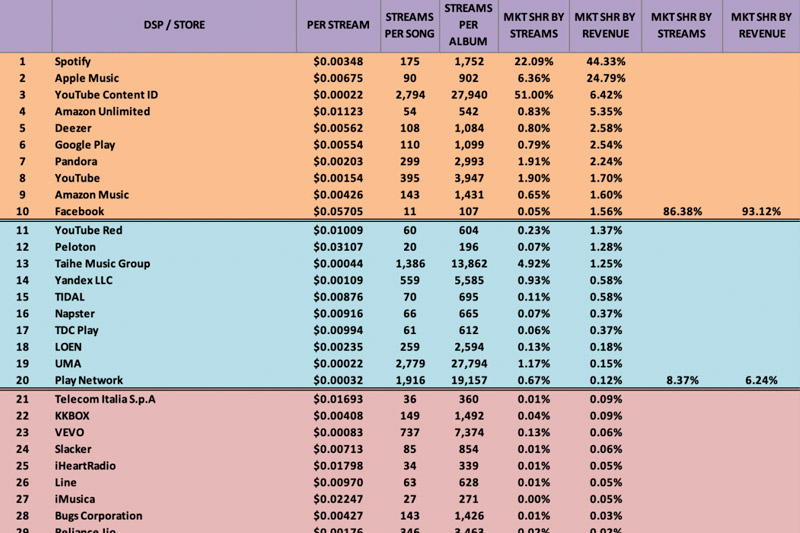Hundreds of millions in songwriter and composer royalties at stake
NEW YORK CITY, OCTOBER 2, 2023: The organizational members of the Music Creators North America (MCNA) alliance, including the Songwriters Guild of America (SGA), the Society of Composers & Lyricists (SCL), the Alliance for Women Film Composers (AWFC), the Game Audio Network Guild (GANG), Music Answers (MA), and several other major North American creator organizations have today sent statements of support and thanks to those members of Congress who have recently expressed interest in the issue of balancing the Mechanical Licensing Collective (MLC) board of directors with an equal number of music creators and corporate music publishing representatives.
The MLC was established by Congress under the Music Modernization Act of 2018 (MMA) to fulfill licensing and royalty distribution duties related to the use of musical compositions in audio streaming, downloading, and on physical products such as vinyl records and CDs. Its board currently consists of ten corporate music publishing representatives and just four writers, who oversee MLC’s annual collection and distribution of hundreds of millions of dollars in music royalties, and control the fate of hundreds of millions more in accumulated, unclaimed and/or unmatched “black box” revenues.
Since before the passage of the MMA legislation, MCNA has advocated for an MLC board structure that provides equal representation to music creators. According to SGA president Rick Carnes, SCL president Ashley Irwin and MCNA president Eddie Schwartz, all three of whom are accomplished songwriters and composers, “the board of a governmentally established licensing organization handling billions of dollars in music creator royalties should in no way be weighted in favor of multi-national corporate interests, as opposed to giving an equal voice to the actual creators of America’s musical culture that contributes enormous value to the US economy. Unfortunately, as we predicted the current board imbalance is sustaining enormous conflicts of interest, remains contrary to custom and business practices throughout the entire rest of the world, and most of all, is just plain unfair.”
The following, specific points have been highlighted by MCNA to members of Congress, who are clearly taking note:
1. Ignoring global precedent:
To MCNA’s knowledge, no other government-established music royalty collective organization in the world permits global business interests to have a greater voice in board decision-making than the local creators whose works and the royalties they produce are the entire basis of the commerce being conducted by that collective.
2. Defying US precedent:
In the United States, the recording artist royalty model established by Congress for the recording industry over two decades ago was used repeatedly as the example of a fully functional royalty collection organization by the music publishing community in pushing for the establishment of the MLC. And yet, while the recording royalty board is fairly and evenly divided between artist and record company interests, music publishers actually threatened to withdraw from the MMA legislative process if the ratio of the new MLC board did not include an overwhelming imbalance favoring music publishing conglomerates over creators. The only concession given was to increase the number of music creator board members from two to four, while maintaining nearly the same ratio of publisher control.
3. The “Black Box” conflict of interest:
There are many reasons for multi-national music publisher insistence on iron-clad MLC board control, not the least of which is that the MLC is charged with identifying hundreds of millions of dollars in unmatched and unclaimed “black box” royalties and distributing them to their rightful owners. The law also provides that those royalties determined by the MLC to be permanently unmatched or unclaimed are to be distributed on a market share basis, with the vast bulk of such monies thereby flowing to the major, global music publishers who control the MLC board (required to be shared with their affiliated creators under an unnecessarily vague legislative mandate). This conflicted protocol –which may soon come into play regarding distributions of black box royalties that could easily top one billion dollars over the next three years–is antithetical to any reasonable standard of fair business practice, and one not worthy of the current imprimatur granted to it by the Congress of the United States through the MMA.
4. Music creators simply seek equality, not advantage:
In short, the majority of the members of the MLC board clearly have a vested interest in musical works NOT being accurately identified and matched, and royalties NOT being properly distributed to their rightful owners (who must be located and registered with the MLC to receive them). This anomaly in the law was pointed out over and again by MCNA on behalf of the independent music creator community throughout the MMA legislative process, only to be shouted down by the major music publishers and their trade association in part for the obvious reasons noted above. (Other issues such as avoidance of songwriter and composer copyright termination/recapture rights have also been raised as potentially being unfairly affected by unequal board representation, a problem that the Copyright Office is currently studying).
5. Reform must include autonomy in selection of music creator voting and non-voting board members:
MCNA hastens to add that the MLC bylaws have also been constructed to ensure corporate domination of the organization, requiring the full MLC board to approve all new candidates for board seats. This governance rule effectively gives music publishers veto power over the designation of those music creators that may be selected as candidates to fill the four MLC minority board seats. Moreover, the board majority is granted further influence over the filling of the non-voting music creator organizational seat, which was clearly contemplated by Congress to be occupied by a representative for a creative community advocacy and communication group, not by an organization willing to limit its practical function to serving as a rubber stamp for the major music publishing corporations. Strict term limits on such non-voting organizational positions need to be contemplated, along with other actions that would fairly balance the MLC’s board composition and improve the fulfillment of its fiduciary responsibilities to the entire music creator and music business communities.
“We are advocating for these simple steps be taken right now,” conclude the three MCNA leaders, “prior to the MLC determining that any black box royalties are ‘permanently’ unmatchable or unclaimed by their rightful owners or co-owners, and then distributed by market share to parties we are certain do not own them. The misdirection of hundreds of millions of dollars in songwriter and composer royalties is at stake over this single issue. As such, we are working with members of Congress to help them to accomplish what we believe has always been their goal: to ensure the highest possible level of fairness in this process for the individual creators and small businesses that are the bedrock of American musical culture and commerce.”
For further information concerning MCNA and its members regarding this issue, please visit www.musiccreatorsna.org or contact MCNA at Ray Costa, Costa Communications.
<end>
Photo by Viktor Forgacs on Unsplash
Note: This article originally appeared at Fair Trade Music International.



